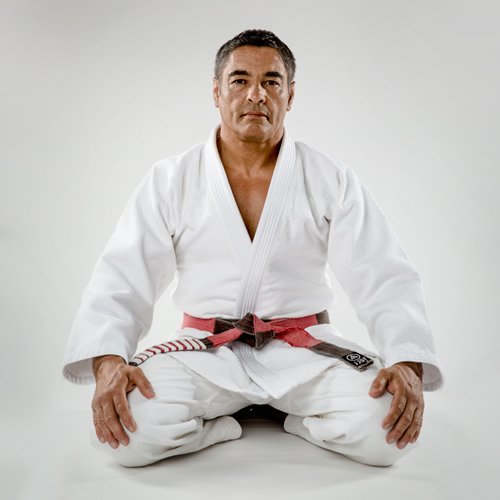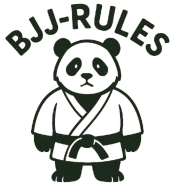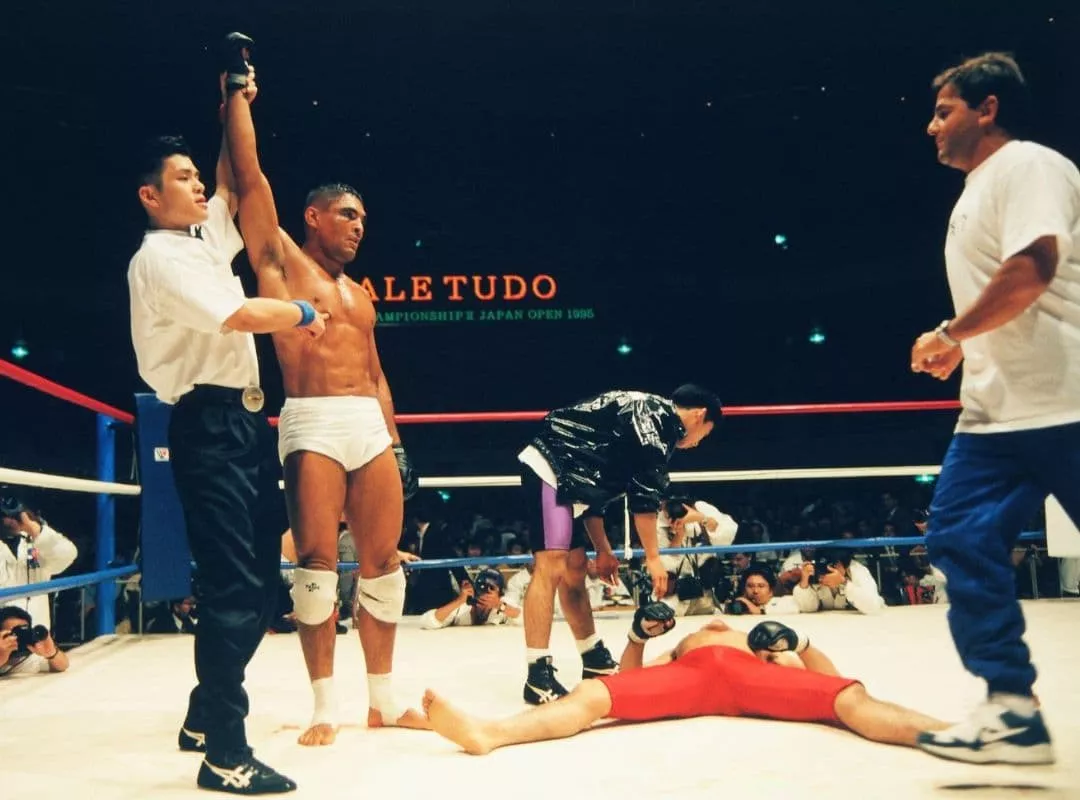Born into the Gracie Dynasty
A Child in the Cradle of Jiu-Jitsu
Born in 1959 in Rio de Janeiro, Rickson Gracie grew up at the heart of the family that revolutionized the world of martial arts. He is the son of Hélio Gracie, one of the founders of Brazilian jiu-jitsu, and from birth, he was immersed in an environment where the discipline was much more than a sport: it was a philosophy, a way of life.
In the family home, the tatami was ever-present. Rickson watched his brothers and cousins train, heard stories of challenges and victories against larger and stronger opponents. Very quickly, he understood that he too would have to write his own chapter in this already legendary family history.
The Influence of Hélio Gracie, His Father
Hélio Gracie was a demanding yet inspiring authority figure. From an early age, he instilled in Rickson the fundamental principles of jiu-jitsu: technical efficiency, respect for the opponent, and achieving control with minimal effort. Hélio didn’t just want his son to be a fighter—he wanted him to be a model of mastery and discipline.
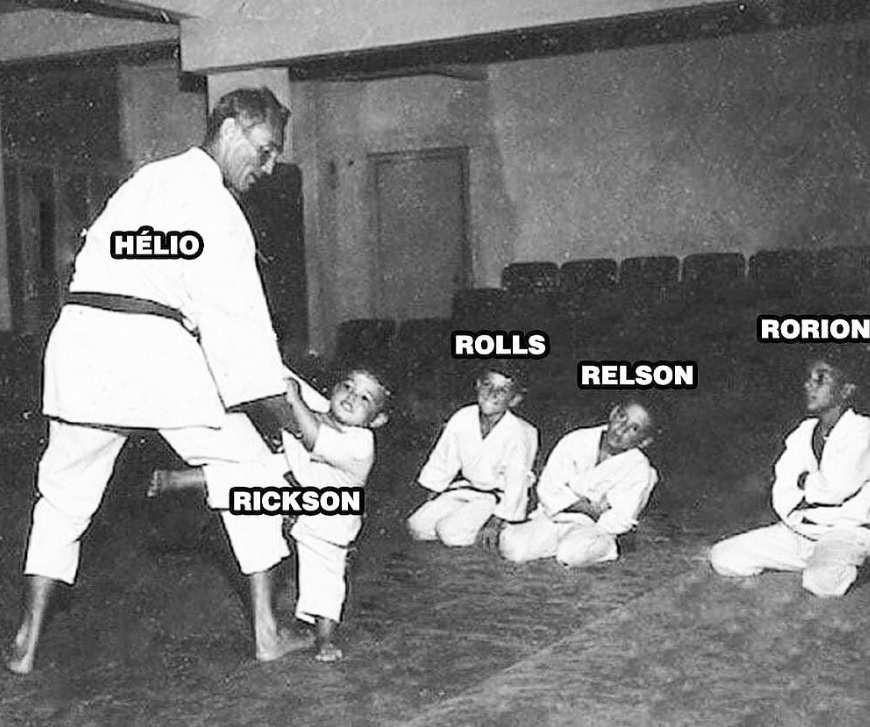
This strict upbringing forged Rickson’s character. Later on, he would develop an almost spiritual approach to combat, centered on breathing, presence, and a refined understanding of leverage and angles. For him, jiu-jitsu is not just a collection of techniques—it is a path.
Early Training on the Tatami
Rickson began serious training as a child. Around the age of 6, he took his first classes with his brothers. By 10, he started sparring. At 14, he was already teaching students older than himself. His talent was evident from early on. His movements were fluid, and his precision impressed even the most seasoned family members.
But more than his technical skills, it was his calm, his focus, and his ability to impose his rhythm that stood out. Rickson was not just another Gracie—he was steadily becoming the most remarkable figure in the lineage.
An Extraordinary Fighting Career
Is Rickson Gracie Really Undefeated?
The myth of Rickson Gracie is partly based on one claim: that he is undefeated in combat. Rickson claims to have won over 400 matches without ever experiencing defeat. While some of these victories are undocumented—especially in-gym challenges or demonstrations—no official or notable fight disputes this reputation.
His undefeated record fuels both respect and fascination. How can one man dominate so many fights against opponents of various styles, sizes, and skill levels? The answer lies partly in his meticulous preparation, his anticipation, and above all: his complete self-mastery.
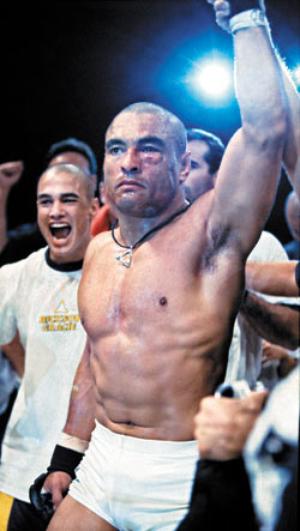
Rickson Gracie Most Memorable Fights
Among the highlights of his career are his victories in Japanese Vale Tudo events during the 1990s. His legendary matchups against fighters like Zulu or Yuki Nakai remain etched in the history of no-holds-barred combat. In those moments, Rickson displayed not only technical superiority but also exceptional composure under pressure.
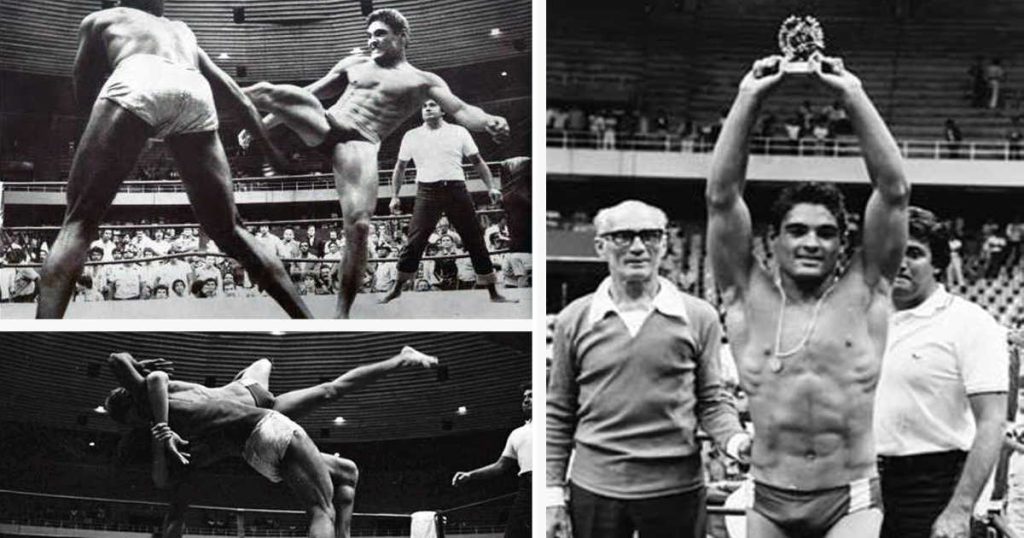
His time in Japan with PRIDE and the Vale Tudo Japan tournament helped introduce Brazilian jiu-jitsu to a global audience. These often spectacular matches were also reflections of his philosophy: control without brutality, impose the pace, and pursue submission with remarkable efficiency of movement.
His View on Real Fighting and Self-Defense
To Rickson, jiu-jitsu is not limited to sport or competition. He sees it first and foremost as a martial art meant for real-life situations. He emphasizes the importance of self-defense, self-control, and the ability to manage a confrontation without unnecessary aggression.
Rickson also opposes certain trends in modern jiu-jitsu, which he believes are too focused on point-based sport competition. Rickson advocates for a return to the core essence of jiu-jitsu: an art of control, energy management, and personal defense. His vision aligns with a more holistic, almost philosophical practice of combat.
Philosophy, Breathing, and Self-Control
Breath, the Key to His Art (Inspired by *Breathe*)
Rickson Gracie never saw breathing as a mere biological reflex. For him, breathing is a conscious act, a tool for mastering both the inner and outer self. In his book Breathe, he explains how breathwork is central to both his martial practice and his life philosophy.

In a fight, proper breathing allows you to stay calm, clear-headed, and manage your energy output. Rickson trained extensively in breathing techniques inspired by yoga, Zen, and other Eastern traditions. He adapted these techniques to the realities of jiu-jitsu, where any unnecessary muscle tension can cost you dearly.
He teaches his students that breath guides movement. Slow, controlled breathing calms the mind, refines technique, and helps maintain control—even in moments of extreme stress. For Rickson, this is the foundation of “invisible jiu-jitsu”—the part you don’t see, but that makes all the difference.
Rickson’s Approach to Mental Preparation
In addition to breathing, Rickson Gracie places great importance on mental preparation. He often speaks of achieving a state of “total presence” (which will be the focus of a future article!), a balance between awareness, confidence, and letting go. To him, a fighter must learn to observe their thoughts without attachment, to treat fear as a signal—not an obstacle—and to stay centered under pressure.
This approach goes far beyond the mats. Rickson sees combat as a mirror of life. The challenges faced on the tatami prepare one to tackle the hardships of daily life: pain, failure, unpredictability. His method relies on mental discipline as well as deep self-awareness, developed through regular training, meditation, and reflection.
What Rickson Gracie Criticizes About Modern Jiu-Jitsu
Rickson Gracie has never hidden his disappointment with certain directions taken by modern jiu-jitsu. He criticizes the dominance of the “point game,” where competitors aim to rack up points without pursuing submissions. He also objects to the increasing focus on acrobatic positions at the expense of effectiveness in self-defense.
For him, jiu-jitsu must remain an art of survival and intelligent control—not just a competitive sport. He advocates for a complete approach rooted in the original principles of his family: personal defense, realistic efficiency, and the transmission of values. This is also why he created the Rickson Gracie Cup and his universal jiu-jitsu program, aiming to preserve the core essence of the art he has always defended.
Rickson’s Legacy in the World of BJJ
Kron Gracie: His Son, His Heir
Among all his children, it is Kron Gracie who most directly embodies Rickson’s martial legacy today. Kron is known for his aggressive style, fluid transitions, and dedication to pure submissions. He earned numerous jiu-jitsu titles before transitioning to MMA, where he continues to apply the principles taught by his father.
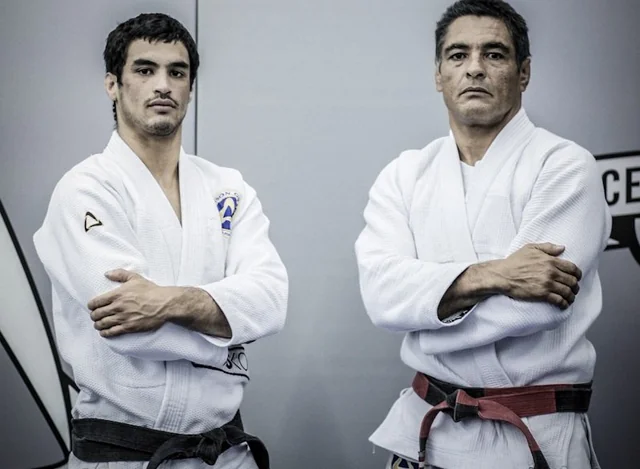
Their relationship, marked by high standards and mutual respect, reflects the way knowledge is passed down in the Gracie family. Rickson sees Kron as a complete fighter and a true carrier of his values: authenticity, efficiency, and respect for tradition. Even inside the cage, Kron strives to honor the Gracie philosophy.
His Role in Preserving Original Jiu-Jitsu
Rickson is one of the last living representatives of a time when Brazilian jiu-jitsu was still closely tied to self-defense and the reality of street fighting. He actively advocates for this side of BJJ not to be forgotten in favor of a purely competitive or sportive logic.
Through his teaching, seminars, and public speaking, he constantly reminds practitioners of the importance of mastering fundamentals, understanding the “why” behind techniques, and cultivating a holistic approach to the discipline. He teaches not just the “how,” but most importantly, the “why.”
Rickson’s Influence on Today’s Practitioners
Rickson Gracie is a mythical figure, and his influence is felt in countless academies around the world. His approach inspires both instructors and advanced practitioners who aim to deepen their understanding of jiu-jitsu beyond points and podiums.
Entire generations of black belts name Rickson as a role model. His “invisible jiu-jitsu,” based on connection, timing, and energy efficiency, is studied, discussed, and sometimes even taught as a discipline of its own. Rickson has become a school within the school.
What Rickson Gracie Still Teaches Us Today
Why He Remains a Guiding Light for Practitioners
Rickson Gracie is not content with just being a legend—he remains an active and living reference in the world of Brazilian jiu-jitsu. For many, he embodies the very essence of martial arts—an equilibrium between technique, philosophy, and personal integrity. At a time when BJJ is becoming increasingly popular and sometimes more “sport-oriented,” Rickson reminds us of the importance of roots and the intention behind every movement.
His commitment to a “complete” jiu-jitsu, which goes beyond competition, speaks to all those seeking deeper meaning in their practice. It is not uncommon for practitioners to return to his videos, interviews, or book to regain a sense of direction. Rickson continues to inspire because he represents a durable, profound, and human form of jiu-jitsu.
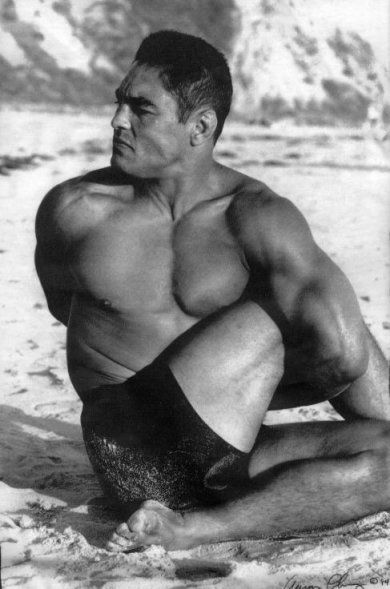
His Inspiring Quotes
Among the many quotes circulating in dojos, some from Rickson have become almost like mantras. They encapsulate a vision of jiu-jitsu as a life path, a school of patience, control, and confidence:
- “Jiu-jitsu is not about being better than someone else. It’s about being better than you used to be.”
- “Invisible jiu-jitsu is the connection you feel, but cannot see.”
- “You can’t always control what happens to you. But you can control how you respond.”
- “Breathing is the remote control of the brain.”
These phrases, simple on the surface, deeply resonate with those who seek to grow both in their art and in life. Rickson speaks not only to fighters but also to human beings in search of balance.
How You Can Apply This to Your Own Jiu-Jitsu
Rickson Gracie’s lessons are not reserved for an elite. They can be applied to any practice, at any level. Here are a few practical tips:
- Work on your breathing: learn to breathe slowly and deeply to better manage effort and stress.
- Return to the fundamentals: refine the basics and understand the principles behind techniques.
- Avoid unnecessary tension: cultivate fluidity, relaxation, and precision rather than brute strength.
- Practice with intention: don’t just “do” jiu-jitsu—ask yourself why you’re doing it, and how you can grow as a person through it.
By applying these principles, every practitioner can evolve toward a practice that is more mindful, deep, and long-lasting. Rickson shows us that jiu-jitsu can be much more than a sport—it can be a way of life.
Conclusion
Rickson Gracie never settled for simply winning. He always sought to understand, to teach, and to elevate his art. Behind the image of the undefeated fighter is a man deeply connected to his values, his family, and a vision of jiu-jitsu as a school of life.
At a time when practices are evolving, and BJJ sometimes leans more toward spectacle than functionality, Rickson remains a compass. He reminds us that mastery is not just about points or medals. It lies in attention to detail, breathing, respect, and sincere commitment in every training session.
Rickson Gracie is more than just a name. He is a philosophy, a living legacy, and for many, a timeless role model. Whether you’re a beginner or a black belt, his teachings resonate powerfully and light the path of a demanding yet deeply enriching journey.
Rickson Gracie: beyond the myth, a real legend who continues to shape today’s—and tomorrow’s—jiu-jitsu.
